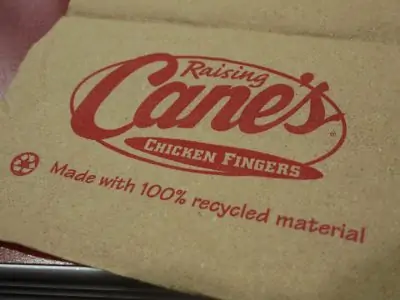
The key to a successful investment is taking advantage of opportunities with potentially high rates of returns with the lowest risk of investment. Additionally, that key must be gripped by a patient hand. Investing is a skill that needs to be honed and perfected over time in order for it to be used properly. Investment isn’t a get-rich-quick scheme and vice-versa. At least, investing shouldn’t be treated in such a manner strategically.
These were nuggets of investment advice that I recently received from a friend of mine who is also an investment manager. He doesn’t charge me and always makes himself available to my questions. Still, at the risk of sounding ungrateful, its advice that only takes me so far. After all, I then have to take that advice and take a chance on losing my investment.
Like most people with a house, car, and family, I am working with scared money. There are mortgage payments, car payments, grocery bills, insurance premiums, and all kinds of regular bills to worry about. The average American only makes about $56,000 by some estimates. Meanwhile, household expenses for some families can top $60,000 annually, easily.
Risk of Inexperience
Who doesn’t want to be an investor? Unfortunately, that kind of attitude is the main problem with the investing strategies of novice and expert investors alike today. We live in an era where people think they will expedite their potential investment returns quickly and easily. And, the only way to invest is via a hot tip. I don’t like admitting it, but just choosing a stock or company to invest in can be an almost impossible task.
The wages of investment are not as high as they used to be nowadays. You can invest with as little as $500 or $1,000, or even less if you invest in the right penny stocks. However, that is the problem. The wrong or hype-influenced investment can lead to a full investment wipeout. As I stressed before, I am playing with scared money. Still, I’ve also learned that one of the most reliable financial investments one can make is in United States Treasury bonds.
United States Treasury Bonds: A Reliable Investment
Why should you invest in U.S. Treasury Bonds, also called T-bonds? Well, T-bonds are easy to understand and are extremely low-risk investments. They are also the only investments around that are practically guaranteed to produce returns, albeit modest ones. However, T-bonds are a much safer bet than any hot stock tip or hyped-up investment strategy
A T-bond is basically a loan to the United States government. When you buy a T-bond, you are loaning the United States government money to fund its federal initiatives. You can buy T-bonds for 10-year, 20-year, and 30-year terms. The interest rate on T-bonds, also known as the “coupon rate,” accrues twice a year. However, you shouldn’t cash out a T-bond until after its maturity date.
In other words, if you buy a 30-year T-bond, you shouldn’t cash it out until 30-years from now. If you do, beyond paying any penalties, you lose any potential interest that would have accrued over 30 years. Currently, the coupon rate for a 30-year T-bond is about 2.53%, added twice a year, as of this writing. That may sound like a conservative rate of return, but it virtually guaranteed compared to blindly investing in a stock or company based on a hot tip or gut instinct.
Treasurydirect.gov
United States Treasury Bonds, as well as T-bills and T-notes, which are the essentially the same thing except with shorter maturity dates, are sold by the U.S. Department of the Treasury through Treasurydirect.gov. Original bonds are sold through public auction during February, May, August, and September only. Reopening auctions of additional bonds are sold during all other months. You can bid yourself or through a broker.
Investing in U.S. Treasury bonds is a great way to start an investment portfolio in unreliable, uncertain, and volatile stock market atmosphere. Don’t forget that interest rates payments for T-bonds are exempt from local and state taxes as well.
Read More
4 Smart Tips All First-Time Real Estate Investors Should Know
First Time Investor? Here’s Some Stress Relieving Advice
Sunk Cost Fallacy Makes You A Terrible Investor
Allen Francis was an academic advisor, librarian, and college adjunct for many years with no money, no financial literacy, and no responsibility when he had money. To him, the phrase “personal finance,” contains the power that anyone has to grow their own wealth. Allen is an advocate of best personal financial practices including focusing on your needs instead of your wants, asking for help when you need it, saving and investing in your own small business.







